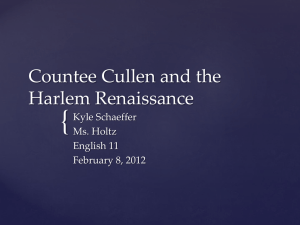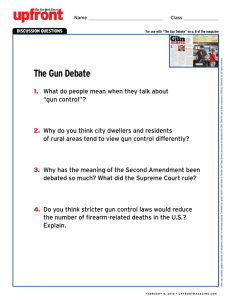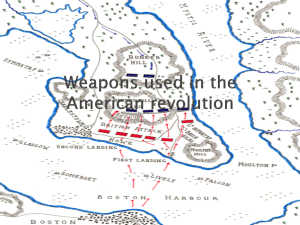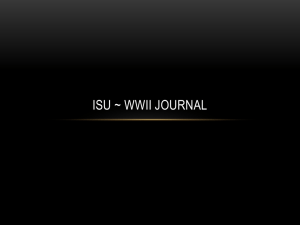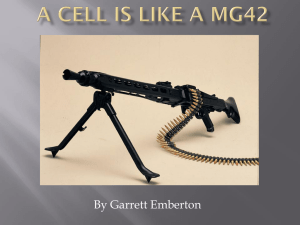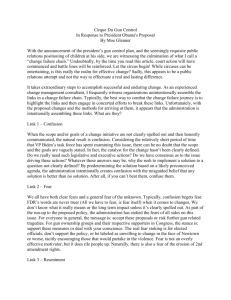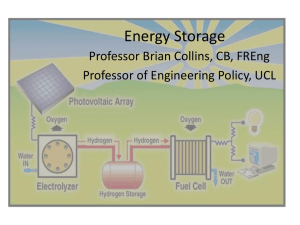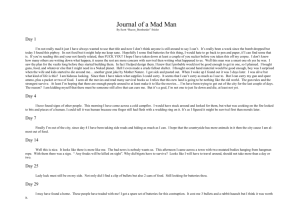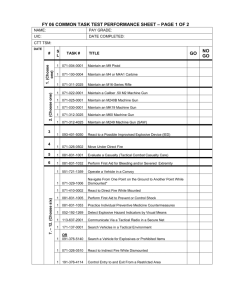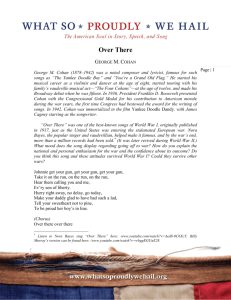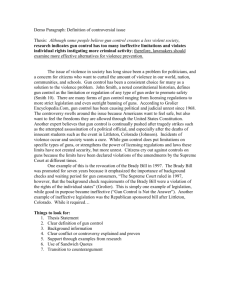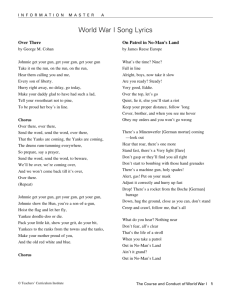12th Grade Summer Reading Assignment
advertisement
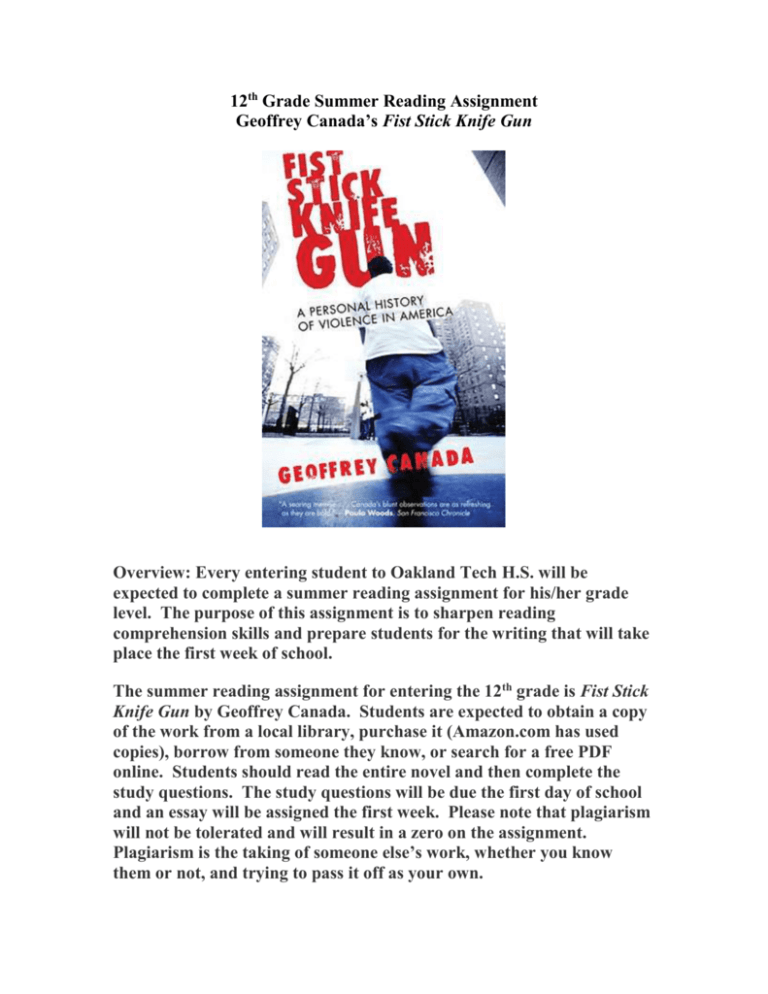
12th Grade Summer Reading Assignment Geoffrey Canada’s Fist Stick Knife Gun Overview: Every entering student to Oakland Tech H.S. will be expected to complete a summer reading assignment for his/her grade level. The purpose of this assignment is to sharpen reading comprehension skills and prepare students for the writing that will take place the first week of school. The summer reading assignment for entering the 12th grade is Fist Stick Knife Gun by Geoffrey Canada. Students are expected to obtain a copy of the work from a local library, purchase it (Amazon.com has used copies), borrow from someone they know, or search for a free PDF online. Students should read the entire novel and then complete the study questions. The study questions will be due the first day of school and an essay will be assigned the first week. Please note that plagiarism will not be tolerated and will result in a zero on the assignment. Plagiarism is the taking of someone else’s work, whether you know them or not, and trying to pass it off as your own. Assignment for Personal Reflection Read each of the following quotes from Fist Stick Knife Gun and choose one from each chapter on which to write a journal reflection (each journal should be a half page at least)P. Connect the quote to events in the book, to observations you’ve had, or to events in your life or the lives of the people you know. You may also choose to relate the quotes to what you know about adolescence, violence, preparing children for success and survival today, or how poverty, weapons, and the early loss of innocence affect many young people. Chapter Sixteen "I found myself thinking more like a military strategist than a human services executive." "But I had lived many years where my life didn't depend on the subtle clues that those who lived on the streets could read like an encyclopedia." "But the angry young men aren't the enemy." Chapter Seventeen "The suffering of poor children as they try to cope with a world that crashes upon them like a tidal wave, drowning so many, and so many washed out to sea to flounder and pray for rescue." "The 1983 handgun slump taught the industry that it could not take sales for granted and forced its members to rethink how they marketed their product." "I looked at Marian Wright Edelman and the look of disgust on her face told it all." "The problem with a used gun was that you didn't know if it had any `bodies' attached to it." Chapter Eighteen "When you see the problems of crime and violence in these simplistic terms you begin to develop solutions that are also simplistic." "Most times the closest the poor come to justice in America is the police, and so they often think American justice stinks." "I was happy when I no longer looked like a young man because this afforded me a little protection." "Did the long tough prison sentence deter people from selling drugs?" Chapter Nineteen "This was a block that people who could afford to had long since fled, a block you could find in any city in America." "The night before we were to open the Countee Cullen Community Center at that school, Joe and Shawn asked to see me. 'They killed a young man right next to the entrance of the school last night,' Shawn reported. 'Shot him dead.'" Chapter Twenty "Many think of outside agencies and `do-gooders' as carpetbaggers, there to make a quick buck off their misery and then move on." "They decided they wanted a 'play street.'" "Rheedlen's Beacon program at Countee Cullen is designed to help rebuild the Central Harlem community that surrounds it." "We discovered long ago that we cannot save children without making as strong an effort to help their parents." "There are many exciting things happening at our Beacon School." Chapter Twenty-One "Chicago is a city under siege." "This is Union Avenue, ain't no cops coming here." "She hugged him back, unaware that this was a person who only a short time before had considered all law enforcement people the enemy." Chapter Twenty-Two "There is a war raging in our inner cities across this country, and our children are the main combatants." "One of the key components of our Peacemakers program is involving the children themselves in designing effective anti-violence strategies." "People often say to me that there seems to be a bias against poor minority children who do well in school, that they are actually punished by other kids for being `smart.'" "There is no doubt in my mind that if I'd had access to a gun I would have been prepared to use it that day." Chapter Twenty-Three "The fact of the matter seems quite simple to me. Either we address the murder and mayhem in our country or we simply won't be able to continue to have the kind of democratic society that we Americans cherish." "But there are things that government could and should do right away to begin to end the violence on our streets." Chapter Twenty-Four "Young men in Harlem know death." "How ironic to have figured a way to get out of the South Bronx, a way to find the peace that was so elusive to me as a child, only to be right back at the same place thirty years later." Chapter Twenty-Five "The city is cutting youth services again." "This is also part of the act-all the attention to detail keeps him from feeling ashamed." "And if I could get the mayors, and the governors, and the president to look into the eyes of the five-year-olds of this nation, dressed in old raggedy clothes, whose zippers are broken but whose dreams are still alive, they would know what I know-that children need people to fight for them." Adapted from Beacon Press Library, written by Patricia Morrissey Stanley
